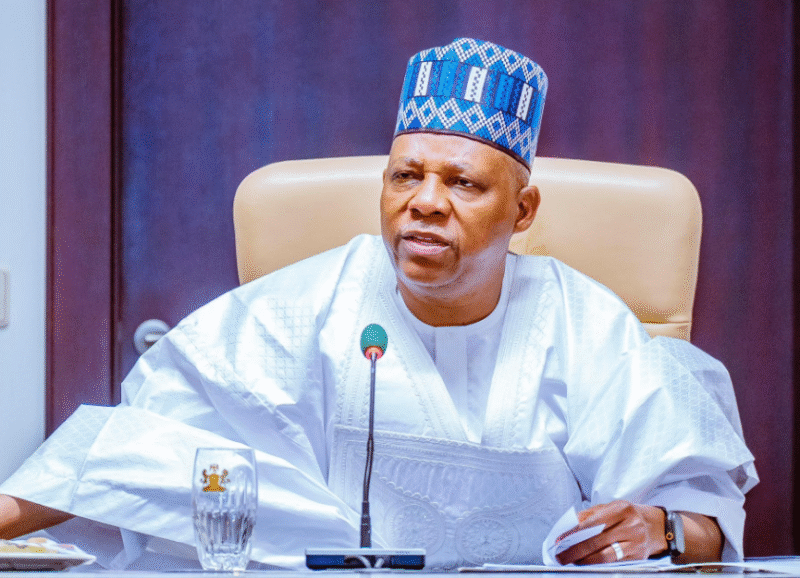Nigeria to end diesel dependency, slash carbon emissions with Integrated hybrid energy system

Vice President Kashim Shettima
Abdullateef Fowewe
Vice President Kashim Shettima has declared that Nigeria is on the path to phasing out diesel dependency and significantly reducing carbon emissions through the deployment of an integrated hybrid energy system, revealed a statement on Wednesday by the Senior Special Assistant to The President on Media & Communications (Office of The Vice President), Stanley Nkwocha.
He made the announcement while officially opening the Decarbonising Infrastructure in Nigeria Summit (DIN SUMMIT) in Abuja.
Shettima emphasised that Nigeria can no longer afford to build “yesterday’s infrastructure for tomorrow,” stressing that climate action has evolved from a luxury to an economic necessity. He warned, “Nigeria would struggle to compete or catch up with the world if the nation’s climate dreams do not align with its development realities.”
Highlighting a flagship project, the Vice President said, “Onne Port, for instance, is already emerging as the template for our quest to breathe life into a robust green economy. Discussions are currently underway with private investors to commit nearly $60 million to electrify the port and transform it into Nigeria’s first green port.”
He added, “Through an integrated hybrid energy system, we will phase out diesel dependency, slash carbon emissions, and provide 24/7 sustainable and affordable power to terminal operators and port users.”
This summit is inspired by the awareness that we can no longer afford to treat sustainability and profitability as two separate pursuits. This is a product of months of consultations, regional dialogues, and technical deep dives. That is why it reflects our belief that the path to net-zero by 2060 must be paved with concrete action, not convenient rhetoric. Our Energy Transition Plan and Climate Change Act have together created a roadmap that is both visionary and pragmatic.
Shettima revealed that 75% of Nigeria’s greenhouse gas emissions stem from the infrastructure sector—energy, transport, urban development, and agriculture—which are also vital to the nation’s economy, with agriculture supporting 70% of rural livelihoods.
He noted, “The only way out of the predicted doom is to decarbonise these systems. We must build a Nigeria with infrastructure that heals, and not one that harms.”
He projected that if Nigeria gets this transition right, the country could generate over 1.5 million green jobs by 2035 and become a regional leader in clean energy and climate-smart agriculture.
“We are not here to fantasise. We are here to finance, mobilise, de-risk, and build. The Nigeria we want cannot be realised on diesel generators and fragile grids. It will not emerge from a model that chokes our lungs while draining our treasury,” Shettima declared.
The summit’s theme, “Unlocking Climate Finance for Sustainable Development,” was described by the Vice President as apt for Nigeria’s urgent task of decoupling its development from carbon-intensive models without leaving any Nigerian behind.
He stressed the need to strengthen regulatory frameworks, harmonize policies across sectors, and launch tools like the Green Investment Portal to connect capital with climate-smart opportunities.
“Decarbonisation must not stop at Abuja’s gates. It must reach every local government, every community, every home,” he maintained.
Also speaking at the summit, Director General of the National Council on Climate Change, Dr Nkiruka Maduekwe, underscored Nigeria’s vulnerability to climate impacts despite its minimal contribution to global emissions. She called for urgent transition to a low-carbon economy through smart agriculture, renewable energy adoption, and sustainable infrastructure investment.
Musaddiq Mustapha Adamu, Personal Assistant to the President on Subnational Infrastructure, stressed the administration’s commitment to equity and economic survival through climate innovation, stating, “Today’s summit is not just about emissions but about equity, economic survival and building a future where infrastructure does not bury the planet but restores hope and empowers society, especially the young, the poor and the marginalised.”




